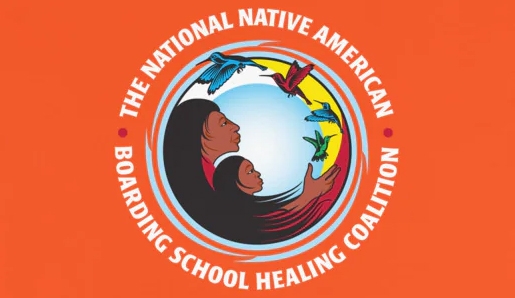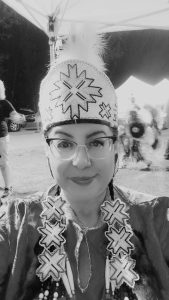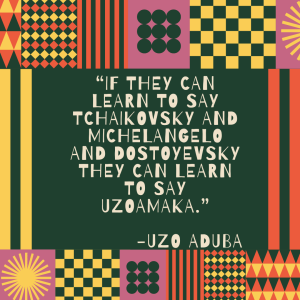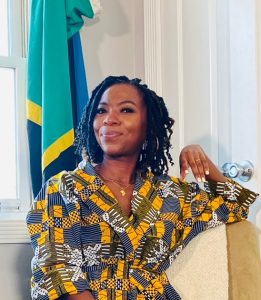In celebration of National Hispanic Heritage Month which is celebrated in the United States September 15- October 15, we share the following article which is cross-posted from Living Lutheran. The original post can be found here.
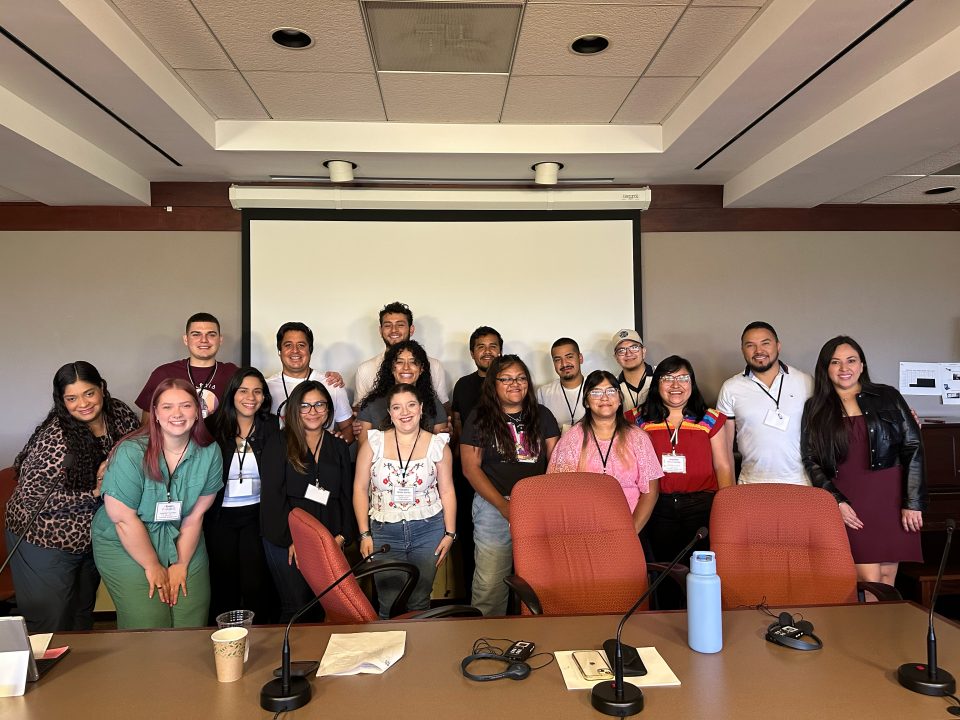
Empowering a New Generation | Empoderando a una Nueva Generación
The Latiné Leadership Summit | La Cumbre de Liderazgo Latiné
This past month, just in time to kick off National Hispanic Heritage Month with a celebration, the ELCA’s Lutheran Center in Chicago transformed into a dynamic hub of growth, learning and community. Young L3s (Latiné Lutheran Leaders) came together for the Latiné Leadership Summit: A Time of Empowerment and Connection. Supported by the Ministries of Diverse Cultures and Communities of the ELCA and sponsored by ELCA World Hunger, this event — organized by the Latino desk of the ELCA — was a groundbreaking experience designed to equip Latiné young adults with the tools, knowledge and support they need to lead effectively within one of the largest (and less demographically diverse) Protestant denominations in the United States.
As I watched these passionate young adults come together, I was overwhelmed with a deep sense of awe and gratitude. I was moved by the realization that they are not just our future, they are the heartbeat of our church right now. Their energy, their commitment and their willingness to step up and lead — it all took my breath away. It was truly a privilege to stand alongside them in this sacred space, to offer them something tangible and meaningful, beyond just words and prayers, for their journey in ministry. As a coordinator for this incredible project, I felt a powerful blend of hope and responsibility. I saw in these young leaders a fierce determination and a readiness to tackle whatever comes their way. And I have no doubt that with their passion and resilience, they will lead us toward a church that is more inclusive, more compassionate and more vibrant than ever before.
A sacred purpose for sacred work
The primary goal of the summit was clear: to provide young Latiné Lutherans with the insights and tools to navigate their leadership journey within the ELCA. By learning from the experiences (and mistakes) of seasoned leaders, these young adults are better positioned to lead with confidence and clarity, avoiding the pitfalls that others have encountered. It was a powerful reminder that the path to leadership is rarely straightforward — it’s often a “bumpy ride,” filled with challenges and opportunities for growth.
The summit began on a high note, with a worship service that featured a welcome message from Presiding Bishop Elizabeth Eaton. In her address Eaton celebrated the enthusiasm and commitment of the young attendees, emphasizing how their passion for the faith and dedication to the gospel of Jesus Christ is inspiring to the entire church. Her words set a tone of encouragement and affirmation, reminding participants of their vital role in the ELCA’s future.
Deep engagement with experienced leaders
The summit was a full event of engagement and learning, beginning with opening remarks from the Hector Carrasquillo, who leads the Latino desk at the ELCA, along with Latiné leaders in our church community such as Nancy Limón, former officer of the Latino Ministries Association, who played a crucial role in curating the summit’s experience. Eaton addressed the participants a second time, reinforcing her earlier message of support and empowerment.
The experience continued with a keynote address, moderated by Carrasquillo and featuring influential church leaders such as Idalia Negrón, former bishop of the Caribbean Synod, ELCA Vice President Imran Siddiqui and Rafael Malpica, former executive director of Service and Justice. Notably, Siddiqui remained for the entire summit, actively listening to the young leaders’ questions and concerns. His presence and engagement were a testament for these young leaders, to the ELCA’s commitment to hearing and addressing the challenges faced by them in navigating the church.
One of the highlights of the summit was the panel “Leadership Tools and Skills.” The panel featured contributions from lay leaders Jennifer DeLeon and Christopher Vergara, both deeply involved in justice work within the church, as well as ordained leaders such as Javier Goitia, María Rojas and Irma Bañales. The panelists shared their insights on inclusive and diverse leadership, offering valuable strategies and personal stories that serve as models for emerging leaders.
Additionally, throughout the event, participants engaged in forums, workshops and panel discussions on a wide range of topics, from “Robert’s Rules and Parliamentary Procedures” to “Non-Traditional Evangelism Strategies” and “Lutheran Theology within the ELCA Philosophy and Structure.” These sessions were led by prominent leaders in our Lutheran community, such as Carmelo Santos and Gabriel Marcano, among others.
“A Radically Welcoming Church”: Celebrating diversity and language
One of the most transformative sessions of the summit, “A Radically Welcoming Church,” was led by Christopher Vergara, vice president of the Metropolitan New York Synod, and Jennifer DeLeon, director of racial justice for the ELCA. This session ignited profound and heartfelt discussions about the urgent need to dismantle internalized racism and queerphobia within both the Latiné and the broader Lutheran communities. The dialogue was not just an intellectual exercise but a deeply personal exploration that touched on the lived experiences of many participants, revealing the complexities and challenges of navigating multiple identities within the church.
A key theme that emerged was the critical importance of embracing the rich diversity within Latiné communities. Participants bravely shared their stories, exploring the nuances of identity, including the role of language as both a cultural bridge and a potential barrier. It became clear that being a part of the Latiné community does not necessarily mean speaking Spanish, yet for many, Spanish remains a deeply significant cultural element that connects them to their heritage and history.
This conversation also highlighted the need for a more nuanced understanding of identity within the church. As we engaged in this dialogue, there was a collective acknowledgment that our journey toward unity is not about erasing differences but about celebrating them. We realized that to build a church that truly reflects the body of Christ, we must first create a space where every person feels seen, heard and valued. This session was a powerful reminder that our diversity — and the vision for a more diverse Lutheran church in the United States — is not a challenge to be managed but a gift to be cherished, a source of strength that can propel us forward as a unified community committed to justice, love and radical welcomeness.
Looking ahead: A vision for the future
The final day of the summit featured a plenary session with ELCA partners and leaders, providing a comprehensive overview of the church’s various departments, programs and ministries. Presentations included insights from Khader El-Yateem and Tammy Jackson, ELCA Service and Justice; Philip Hirsch, ELCA Christian Community and Leadership; Roselle Tenorio, ELCA World Hunger; Kayla Zopfi, ELCA Young Adult Ministry; and myself as representative of the Commission for a Renewed Lutheran Church (the only Latiné member of the CRLC). Carrasquillo and Jaime Dubon, ELCA director for Latin America and the Caribbean, along with Einstein Gonzalez-Leon — representative from the Latino Ministries Association of the ELCA — also shared their messages and ministries.
The closing worship was a profoundly moving experience, one that felt like both an ending and a powerful new beginning. It wasn’t just the conclusion of the summit but the spark of a renewed commitment to leadership within the church. As participants embraced each other and prepared to return to their synods, congregations and communities, the air was filled with a palpable sense of hope and determination. There was a deep, shared belief that this summit was not merely a single event but the first step in a journey — an ongoing movement to amplify the voices of young Latiné leaders, equipping them with the courage, wisdom and tools needed to shape the future of the church and make their voices heard. This was a moment of transformation, a sacred promise that our work together is just beginning.
As we reflect on this impactful event, it is clear that the Latiné Leadership Summit has set a strong foundation for the future. By empowering young leaders and fostering an environment of learning, support and growth, the ELCA is paving the way for a more inclusive and vibrant church community. Like Martin Luther’s call for reformation and renewal within the church, this summit serves as a reminder that our faith journey is one of constant transformation and revolution.
The path may indeed be challenging, but with courage, faith and determination, these young Latiné leaders are ready to lead the way, embodying the spirit of reformation and renewal that has always been central to our Lutheran heritage.
___
El mes pasado, justo a tiempo para comenzar el Mes de la Herencia Latina con una celebración, el Centro Luterano de la ELCA en Chicago se transformó en un dinámico centro de crecimiento, aprendizaje y comunidad. Jóvenes líderes L3 (Líderes Luteranos Latiné) se reunieron para la Cumbre de Liderazgo Latiné: Un Tiempo de Empoderamiento y Conexión. Apoyado por los Ministerios de Culturas y Comunidades Diversas de la ELCA y patrocinado por el Programa Mundial contra el Hambre de la ELCA, este evento —organizado por el Escritorio Latino de la ELCA— fue una experiencia innovadora diseñada para equipar a los jóvenes adultos latinés con las herramientas, el conocimiento y el apoyo que necesitan para liderar de manera efectiva dentro de una de las denominaciones protestantes más grandes (y menos diversas demográficamente) de los Estados Unidos.
Mientras observaba a estos jóvenes adultos apasionados reunirse, me invadió un profundo sentimiento de asombro y gratitud. Me conmovió darme cuenta de que no son solo nuestro futuro; ellos son el corazón de nuestra iglesia en este momento. Su energía, su compromiso y su disposición para asumir roles de liderazgo me dejaron sin aliento. Fue verdaderamente un privilegio estar junto a ellos en este espacio sagrado, ofrecerles algo tangible y significativo, más allá de solo palabras y oraciones, para su camino en el ministerio. Como coordinador de este increíble proyecto, sentí una poderosa mezcla de esperanza y responsabilidad. Vi en estos jóvenes líderes una determinación feroz y una disposición para enfrentar cualquier desafío que se presente. Y no tengo dudas de que, con su pasión y resiliencia, nos guiarán hacia una iglesia más inclusiva, compasiva y vibrante que nunca.
Un propósito sagrado para una obra sagrada
El objetivo principal de la cumbre fue claro: proporcionar a los jóvenes luteranos latines las ideas y herramientas necesarias para navegar su camino de liderazgo dentro de la ELCA. Al aprender de las experiencias (y errores) de líderes experimentados, estos jóvenes adultos están mejor posicionados para liderar con confianza y claridad, evitando las trampas que otros han encontrado. Fue un poderoso recordatorio de que el camino hacia el liderazgo rara vez es sencillo; a menudo es un “viaje accidentado” lleno de desafíos y oportunidades para crecer.
La cumbre comenzó con una nota alta gracias a un servicio de adoración que incluyó un mensaje de bienvenida de la Obispa Presidenta Elizabeth Eaton. En su discurso Eaton celebró el entusiasmo y el compromiso de los jóvenes asistentes, enfatizando cómo su pasión por la fe y dedicación al evangelio de Jesucristo es una inspiración para toda la iglesia. Sus palabras establecieron un tono de ánimo y afirmación, recordando a los participantes su papel vital en el futuro de la ELCA.
Compromiso profundo con líderes experimentados
La cumbre fue un evento lleno de compromiso y aprendizaje, comenzando con las palabras de apertura del Rev. Dr. Héctor Carrasquillo, quien lidera el Escritorio Latino en la ELCA, junto con líderes latinés en nuestra comunidad eclesial como Nancy Limón, ex funcionaria de la Asociación de Ministerios Latinos, quien desempeñó un papel crucial en la organización de la experiencia de la cumbre. La Obispa Eaton se dirigió a los participantes por segunda vez, reforzando su mensaje anterior de apoyo y empoderamiento.
La experiencia continuó con una ponencia moderada por el Pastor Carrasquillo, con líderes influyentes de la iglesia como la Obispa Idalia Negrón, el Vicepresidente de la ELCA Imran Siddiqui y el Rev. Dr. Rafael Malpica. Cabe destacar que el Vicepresidente Siddiqui permaneció durante toda la cumbre, escuchando activamente las preguntas y preocupaciones de los jóvenes líderes. Su presencia y compromiso fueron un testimonio para estos jóvenes líderes del compromiso de la ELCA, de escuchar y abordar los desafíos que enfrentan al navegar por la iglesia.
Uno de los momentos destacados de la cumbre fue el panel “Herramientas y Habilidades de Liderazgo”. El panel contó con las contribuciones de líderes laicos como Jennifer DeLeon y Christopher Vergara, ambos profundamente involucrados en el trabajo de justicia dentro de la iglesia, así como de líderes ordenados como el Rev. Dr. Javier Goitia, la Rev. María Rojas y la Rev. Irma Bañales. Los panelistas compartieron sus ideas sobre el liderazgo inclusivo y diverso, ofreciendo estrategias valiosas e historias personales que sirvan como modelos para los líderes emergentes.
Además, durante todo el evento, los participantes participaron en foros, talleres y paneles de discusión que abarcaron una amplia gama de temas, desde “Reglas de Orden de Robert y Procedimientos Parlamentarios” hasta “Estrategias de Evangelización No Tradicionales” y “Teología Luterana dentro de la Filosofía y Estructura de la ELCA”. Estas sesiones fueron dirigidas por líderes prominentes de nuestra comunidad luterana, como el Rev. Dr. Carmelo Santos y el Rev. Gabriel Marcano, entre otros.
“Una Iglesia Radicalmente Acogedora”: Celebrando nuestra diversidad y lenguaje
Una de las sesiones más transformadoras de la cumbre, “Una Iglesia Radicalmente Acogedora”, fue dirigida por Christopher Vergara, Vicepresidente del ELCA Sínodo Metropolitano de Nueva York, y Jennifer DeLeon, directora de justicia racial para la ELCA. Esta sesión encendió discusiones profundas y conmovedoras sobre la urgente necesidad de desmantelar el racismo internalizado y la homofobia tanto en las comunidades Latiné como en las comunidades luteranas en general. El diálogo no fue solo un ejercicio intelectual, sino una exploración profundamente personal que tocó las experiencias vividas de muchos participantes, revelando las complejidades y desafíos de navegar múltiples identidades dentro de la iglesia.
Un tema clave que emergió fue la importancia crítica de abrazar la rica diversidad dentro de las comunidades Latiné. Los participantes compartieron valientemente sus historias, explorando los matices de la identidad, incluido el papel del lenguaje como un puente cultural y un posible obstáculo. Quedó claro que ser parte de la comunidad Latiné no significa necesariamente hablar español, y sin embargo, para muchos, el español sigue siendo un elemento cultural profundamente significativo que los conecta con su herencia e historia.
Esta conversación también destacó la necesidad de una comprensión más matizada de la identidad dentro de la iglesia. Al participar en este diálogo, hubo un reconocimiento colectivo de que nuestro camino hacia la unidad no se trata de borrar diferencias, sino de celebrarlas. Nos dimos cuenta de que para construir una iglesia que refleje verdaderamente el cuerpo de Cristo, primero debemos crear un espacio donde cada persona se sienta vista, escuchada y valorada. Esta sesión fue un poderoso recordatorio de que nuestra diversidad —y la visión de una iglesia luterana más diversa en los Estados Unidos— no es un desafío a gestionar, sino un don a apreciar, una fuente de fortaleza que puede impulsarnos hacia adelante como una comunidad unida comprometida con la justicia, el amor y la acogida radical.
Mirando hacia adelante: Una Vvisión para el futuro
El último día de la cumbre se presentó una sesión plenaria con socios y líderes de la ELCA, que brindaron una visión general completa de los diversos departamentos, programas y ministerios de la iglesia. Las presentaciones incluyeron ideas del Rev. Khader El-Yateem y Tammy Jackson del Servicio y Justicia de la ELCA; el Rev. Philip Hirsch del Liderazgo y Comunidad Cristiana de la ELCA; Roselle Tenorio del Programa Mundial contra el Hambre de la ELCA; Kayla Zopfi del Ministerio de Jóvenes Adultos de la ELCA; y yo mismo como representante de la Comisión para la Renovación de la Iglesia Luterana (el único miembro Latiné de la CRLC). Carrasquillo y el Rev. Jaime Dubon, junto con el Diácono Einstein Gonzalez-Leon —representante de la Asociación de Ministerios Latinos de la ELCA— también compartieron sus mensajes y ministerios.
El culto de clausura fue una experiencia profundamente conmovedora, que se sintió tanto como un final, así como un poderoso nuevo comienzo. No fue solo la conclusión de la cumbre, sino el comienzo de un compromiso renovado con el liderazgo dentro de la iglesia. Mientras los participantes se abrazaban y se preparaban para regresar a sus congregaciones, sínodos y comunidades, el ambiente estaba lleno de un palpable sentido de esperanza y determinación. Había una profunda creencia compartida de que esta cumbre no fue simplemente un evento único, sino el primer paso en un viaje: un movimiento continuo para amplificar las voces de los jóvenes líderes latinés, equipándolos con el coraje, la sabiduría y las herramientas necesarias para dar forma al futuro de la iglesia y hacer que sus voces sean escuchadas. Este fue un momento de transformación, una promesa sagrada de que nuestro trabajo juntos apenas comienza.
Al reflexionar sobre este evento impactante, es evidente que la Cumbre de Liderazgo Latiné ha establecido una base sólida para el futuro. Al empoderar a los jóvenes líderes y fomentar un entorno de aprendizaje, apoyo y crecimiento, la ELCA está allanando el camino hacia una comunidad eclesial más inclusiva y vibrante. Al igual que el llamado de Martin Lutero a la reforma y la renovación dentro de la iglesia, esta cumbre sirve como un recordatorio de que nuestro viaje de fe es uno de transformación constante y revolución.
El camino puede ser desafiante, pero con valor, fe y determinación, estos jóvenes latinés están listos para liderar el camino, encarnando el espíritu de reforma y renovación que siempre ha sido fundamental en nuestra herencia luterana.

Roberto Lara Aranda is director of communications at the Fetzer Institute, a global philanthropic organization committed to building a spiritual foundation for a loving world. He also serves as a faculty member in the Strategic Communications graduate program at Columbia University in New York City. In addition Roberto is executive director of Select Learning, a faith-based organization that provides theological learning resources for personal, congregational and professional development. He is a member of the ELCA Foundation board of trustees and the ELCA Commission for a Renewed Lutheran Church. Previously he was assistant to the bishop for communications and development of the ELCA Metropolitan New York Synod and served as president of the Latino Ministries Association of the ELCA.
Roberto Lara Aranda es director de comunicaciones en el Instituto Fetzer, una organización filantrópica global comprometida con construir una base espiritual para un mundo amoroso. También sirve como miembro docente del programa de posgrado en Comunicaciones Estratégicas en la Universidad de Columbia en la Ciudad de Nueva York. Además Roberto es director ejecutivo de Select Learning, una organización de fe que ofrece recursos de aprendizaje teológico para el desarrollo personal, congregacional y profesional. Es miembro del consejo directivo de la Fundación ELCA y de la Comisión para una Iglesia Luterana Renovada de la ELCA. Anteriormente fue asistente del obispo para comunicaciones y desarrollo del ELCA Sínodo Metropolitano de Nueva York y se desempeñó como presidente de la Asociación de Ministerios Latinos de la ELCA.


